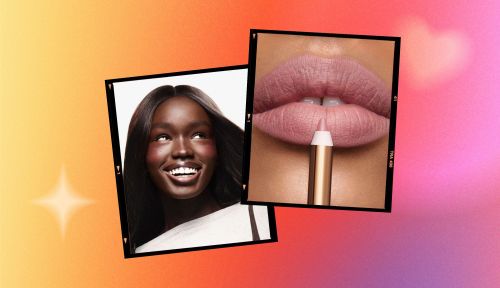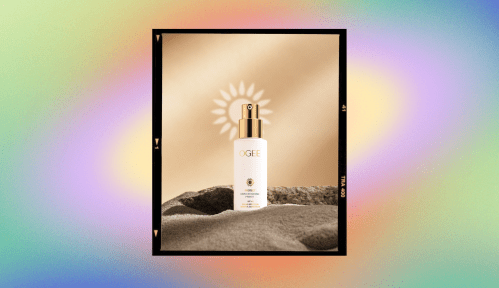Our editors independently select these products. Making a purchase through our links may earn Well+Good a commission
These Are the 7 Best Foundations for Darker Skin, According to Makeup Artists
The best makeup for darker skin are from Nars, CoverFX, Ilia, Bobbi Brown, Iman Cosmetics, and more, according to pro makeup artists.
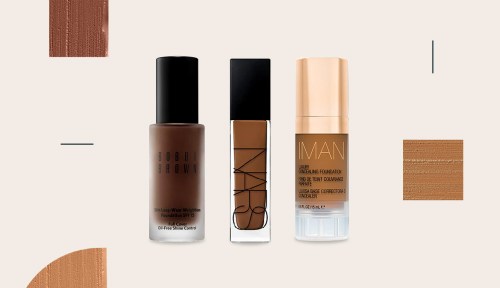
Finding a foundation that blends seamlessly with your skin can be a challenge, especially if you have melanin-rich skin. There’s still room for improvement when it comes to the range of shades brands offer, but until then, we enlisted the help of Delina Medhin, professional makeup artist and content creator, and William Scott, professional makeup artist, to find out what the best makeup for darker skin is.
Experts in This Article
celebrity makeup artist
professional makeup artist and content creator
Meghan Feely, MD, FAAD, is a board-certified dermatologist in New Jersey and New York City and clinical instructor at Mount Sinai.
William Scott is a professional makeup artist.
The best foundations for darker skin tones
Best luxury foundation for darker skin tones
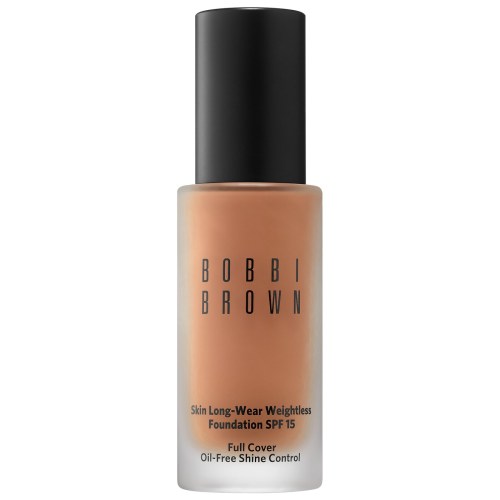
Bobbi Brown Skin Long-Wear Weightless Foundation SPF 15 — $50.00
“This foundation is great for people with golden undertones,” says Medhin. It’s a long-wearing foundation, buildable, and provides a natural matte finish.
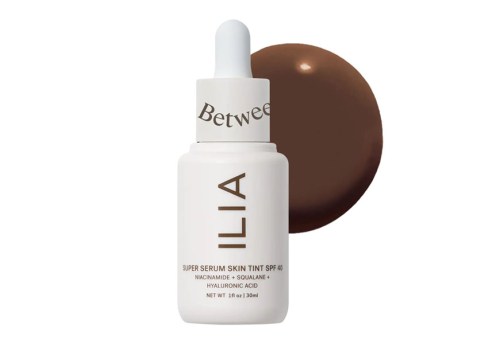
Ilia Super Serum Skin Tint SPF 40 — $48.00
This serum-mimicking tint is loved by many. It will protect your skin thanks to the fact that it’s formulated with SPF 40, and it will also give your complexion a dewy luminescence all year long. Medhin likes this skin tint because Ilia recently increased its range of shades, featuring more undertones and shades for darker skin. She also notes that it’s sheer yet buildable for the days when you want a little more coverage.
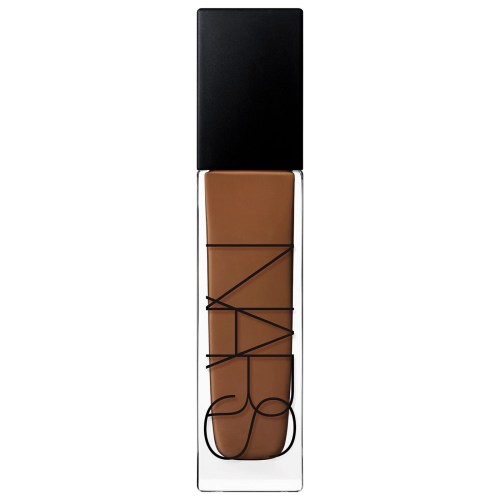
NARS Natural Radiant Longwear Foundation — $49.00
Scott loves NARS foundations (and concealers) because of the deeper shades of foundation offered, the long wearability, and the radiance they give the skin. If this sounds like what you’re looking for, give the NARS Natural Radiant Longwear Foundation a shot.
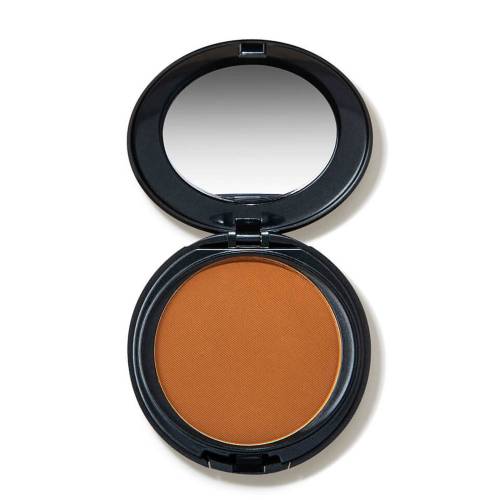
Cover FX Pressed Mineral Foundation — $38.00
Scott says this mineral foundation is beautiful on oily skin and wears well throughout the day, even as it’s built on. This foundation is also supposed to even out your skin tone while concealing the appearance of imperfections.
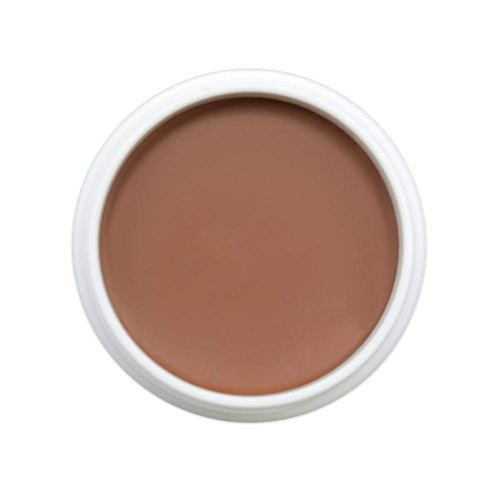
William Tuttle Creme Foundation — $19.00
“William Tuttle Creme Foundation has great specificity to its shades at the deepest end of the spectrum, and the formula mimics the subtle dewiness of bare skin very well, while also giving it a softness without being matte,” says Scott. It’s easy to apply, and blends seamlessly into skin.
Best drugstore foundation for darker skin tones
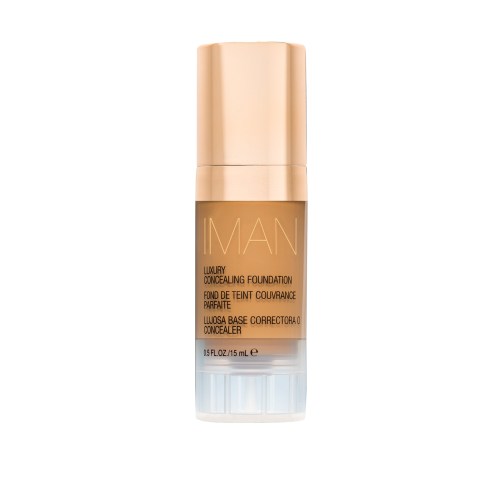
IMAN Cosmetics Luxury Concealing Foundation — $15.00
“This formula is just so beautiful and amazing for olive skin tones,” says Medhin. Plus, it’s great to have because you can either make it super sheer or you can build to medium/full coverage, she adds.
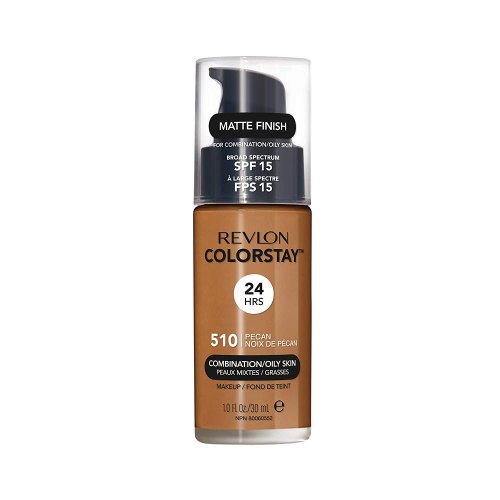
Revlon ColorStay Liquid Foundation — $7.00
If you’re looking for an affordable foundation that provides good coverage and comes in shades that blend effortlessly with your complexion, Medhin recommends the Revlon ColorStay Liquid Foundation.
What makes a good foundation?
Have you ever wondered what makes a foundation good? According to Medhin, a good foundation is one that’s buildable. “I like being able to sheer out a formula if that’s needed, but it’s also great to build it up and make it more medium or full coverage,” she says. “If a foundation works this way, I can also use it almost as a concealer in the areas I need to,” she adds.
“There are a few things that I look for when trying out a new foundation,” says Scott. First, “I want to see the foundation sink into the skin and set as it is massaged in with my fingers,” they say. Second, the formula should disappear into the skin, making it look plump and smooth instead of settling into the pores or appearing congealed on top of the skin, they add. Scott also looks for a formula that is “cohesive and buildable on itself for some added coverage where needed,” they say.
In addition to how the foundation looks on and works with the skin, Scott says ideally it should have little to no fragrance and ingredients that hydrate and protect the skin.
How to find the best foundation for your complexion
If you have darker skin, you’ll more than likely need to use more than one foundation, says Medhin, because your complexion has multiple shades in it. “The center of your face is usually lighter than the outside/hairline, so you want to match your skin in the areas that you’re covering versus finding one shade that’s going to cover your entire face,” says Medhin.
“If you are looking for a foundation in a deep/dark shade, first decide what finish you want and what texture formula you like working with best,” adds Scott. If you have oily skin, Scott suggests powder or matte liquid foundations. If you have dry skin, they recommend a liquid or cream foundation with a dewy or semi-matte finish.
How to choose a foundation formula
The foundation you use is all about personal preference, but factoring in the type of look you’re going for, and even your skin type, can help you make the best foundation selection. “I tend to prefer liquid foundations because they are easier to set with a fixative spray and powder and be sure to last several hours, whereas cream foundations tend to require more powder and maintenance, though the amount of maintenance depends on how oily one’s skin is,” says Scott.
Once you’ve decided on a formula, you may be wondering if there are any ingredients you should look for your in your foundation of choice. If you’ve paid attention to the latest foundation releases, you’ve probably noticed that foundation formulas are beginning to mirror skin-care formulas, says Scott, which means you’ll want to choose your product based on your skin type.
Best foundation for dry skin
If your skin tends to be on the dry side of the spectrum, you should avoid matte, powder, and powder-based foundations, Alexandria Gilleo, a professional makeup artist, previously told Well+Good. Instead, opt for foundations that have hydrating properties such as hyaluronic acid, niacinamide, jojoba oil, vitamin E, glycerides, and squalane.
Foundation for oily skin
If you have oily skin, pros recommend using a matte foundation to reduce shine. Just be sure you don’t go too matte with the finish you choose, because that can lead to cakey-looking foundation and clogged pores.
Foundation for acne-prone skin
For those with acne-prone skin, try a foundation that has non-comedogenic on the label and/or in the product description. This will ensure that your pores won’t be clogged, and although it isn’t 100-percent guaranteed it will stop acne, it shouldn’t worsen it. Mineral foundations are also a great option as they tend to be non-comedogenic. From an ingredients standpoint, a formula that contains salicylic acid or benzoyl peroxide can help keep acne at bay.
Foundation for sensitive skin
Just because you have sensitive skin doesn’t mean that you have to go foundation-free, unless you want to. If your skin is sensitive, try mineral foundations formulated with ingredients like kaolin clay, silica, alumina, or corn starch. “These products often contain less potential contact allergens such as fragrances and preservatives like parabens. Mineral foundations are also generally non-comedogenic, meaning they do not clog your pores,” Meghan Feely, MD, FAAD, a board-certified dermatologist in New Jersey and New York City, previously told Well+Good.
Want even more beauty intel from our editors? Join Well+Good’s Fine Print Facebook group (and follow us on Instagram) for must-know tips and tricks.



